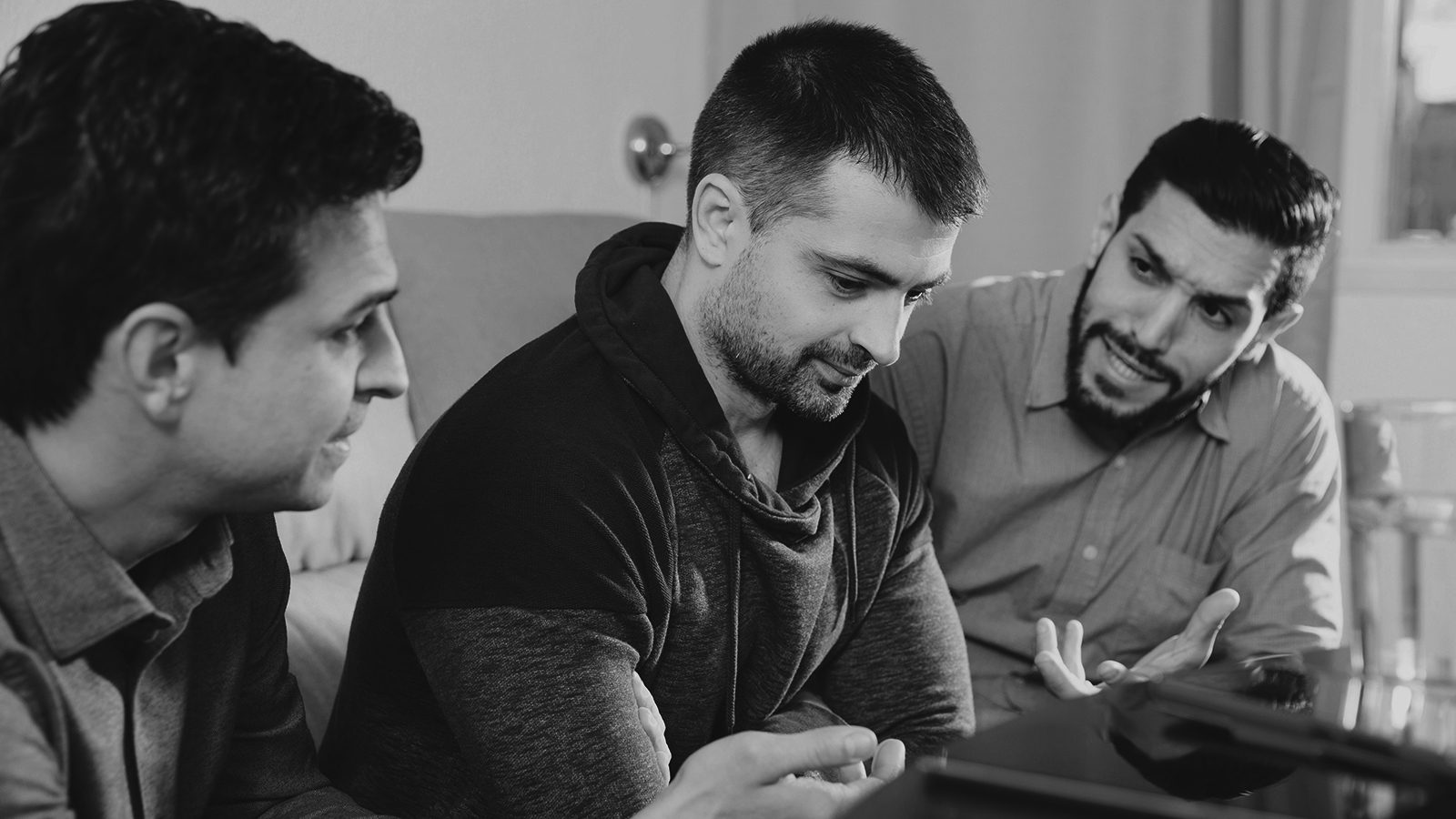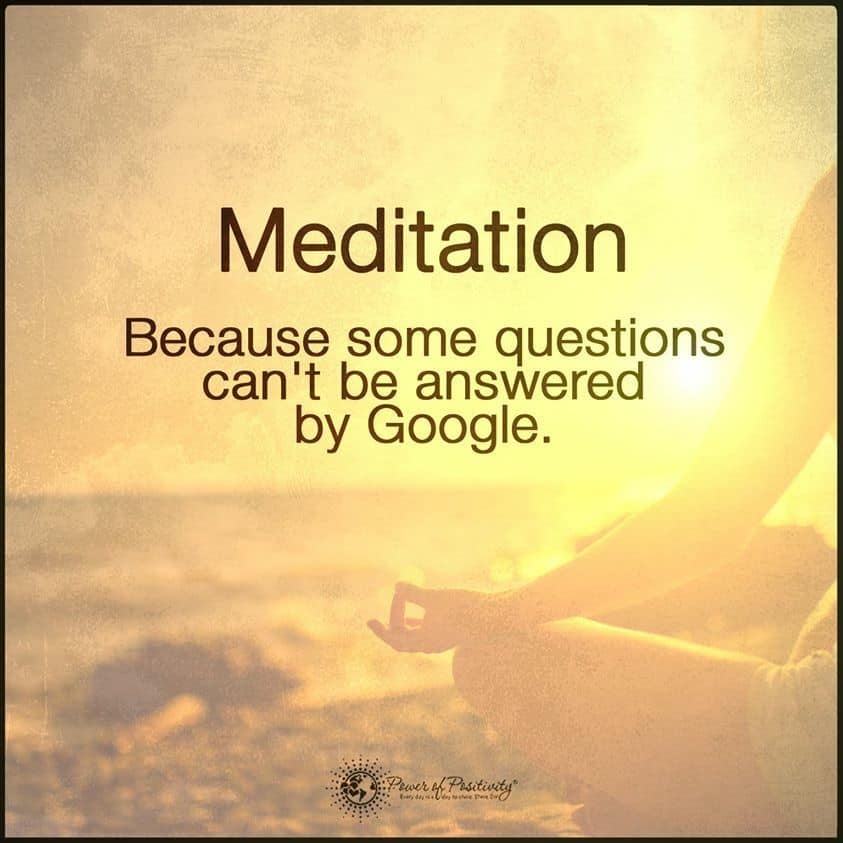Do you have a commanding presence that causes others to have anxiety when they’re around you? Some people are naturally nervous, but it could be your overall demeanor that makes someone feel fidgety.
When it comes to the dating world or looking for a job, you certainly don’t want to make others feel uncomfortable.
Have you seen someone jingle change in their pockets, pick up and put down their beverage over and over, or pace the floor? All of these are outward manifestations of inward anxiety. Everyone has those people that make them feel on edge, regardless of how much of an easy-going person you try to be.
Some folks do better at hiding these feelings of angst than others. If a person struggles with social anxiety, it might not be you that makes them feel nervous. Instead, their illness makes the encounter uncomfortable. Anxiety is not always bad; it can be a good sign in some instances.
If you don’t fear things like job interviews, first dates, or other occasions, it shows that you’re not afraid to go for those things that make you vulnerable. How much more vulnerable can you be than when you’re meeting someone you met off the internet for the first time?
Assume you have a date with someone you’ve only recently met. If your nerves don’t bother you at all, then it’s a sign that you might not be so into this person. However, if the other party is a bundle of nerves and stumbling over their words, it’s one indication that they like you. They feel they must put their best foot forward when the stakes are high.
Ten Signs A Person Is Nervous Around You
Your nerves can undoubtedly get the best of you when you need to make a good impression. If you make a person nervous, then it can be a sign that maybe your personality is bold or that you have a knack for making people feel that they need to walk on eggshells. Here are some indications that you cause anxiety to others.1. Laughing Too Much
Some folks are naturally jolly, but others laugh at everything that comes out of your mouth. For example, if someone is anxious to be around you, then they may laugh too much.
It’s easy to tell this kind of laugh over a traditional one, as it seems forced. Additionally, someone who is giggling all the time can be irritating.
2. Can’t Sit Still from Fidgeting
Have you ever tried to take a child someplace where they needed to sit still? It’s like nailing Jell-O to the wall. They can’t help themselves, as their energy levels and possible nerves won’t allow them to be stationary.
When someone is anxious, they will have a hard time sitting. Some describe it in the old saying as a “Cat on a hot tin roof.” They’re all over the place with their nerves. They’re up and down and pacing the floor. They may make you anxious just watching them.
According to the National Library of Medicine, social anxiety is often observed in outward signs such as fidgeting or trembling.
3. They Keep Going to The Restroom
Unless someone is sick, going to the bathroom constantly is a sign of nerves. The restroom is a great place to hide when your nerves are getting the best. Furthermore, many folks feel the need to urinate when their anxiety is high, so they might be using the bathroom.
However, an escape is needed when social anxiety and general angst are at an all-time high. Splashing some cool water on the face or taking a time out can help calm jittery nerves.
4. They Display a Facial Tic
A tic is an involuntary movement from the muscles caused by nerves. For example, some people will get spasms in their arms and legs, or they will jump. Others develop a twitch that makes their mouth move, while some will feel a pulse that nearly closes the eyes. The body has strange ways of dealing with anxiety, and these tics appear under times of high stress.
5. They’re Constantly Touching Their Face
When someone is nervous, they will touch their face constantly. It seems that when your nerves are frazzled, everything itches. Have you ever been rushing to get a meal on the table, and your nose won’t stop itching?
You probably wouldn’t have that itch if you weren’t cooking. However, it always happens in the most inopportune times, and you often feel the need to itch or scratch something. Playing with your face, nose, ears, or rubbing your chin is all signs of high anxiety.
6. Their Body Is Stiff as A Board
It’s hard to deny the mind-body connection. Most folks want to make a good impression, so they want to have the appropriate body language. However, when you’re nervous, it can cause you to feel tension, which makes you appear stiff.
You can always tell when someone is tense by indications like a stiff jaw, clenching their fists, raising shoulders, and their knees are locked. But have you heard of fight or flight mode when your body senses duress? Well, it’s also known as fight, flight, or freeze? Many people freeze when they feel intense nerve issues.
7. Preening Or Other Motions of Self-Comfort
Preening is not a well-known term today, but it’s how one prepares themselves for social interaction or stress. Have you ever seen someone rub their head constantly or play with their hair? These are examples of preening.
The term preen came from birds. Have you ever seen a bird do maintenance behaviors like using its beak to clean and pick at its feathers? While humans don’t have beaks, they use their hands to preen themselves to look their best in some situations.
According to The Free Dictionary, in humans, it means to elaborately groom. It’s ironic how much the animal kingdom and human actions are related.
8. They Have No Opinion and Are Super Agreeable
When someone doesn’t want to make any waves, they will agree with whatever comes from your mouth. They will nod in confirmation if you tell them the sun is purple. It’s not that they don’t have other opinions, but it’s that you make them so anxious that they don’t want to voice their true feelings.
9. They Refuse to Make Eye Contact
One of the most annoying habits is when you try to talk to someone, and they stare off into the corner. It would help if you always looked in the eyes when speaking, as looking away or down is a sign of dishonesty. While these folks aren’t being dishonest, they cannot handle the level of anxiety they feel when they talk to someone looking them eye-to-eye.
10. Closed Body Language
This is a strange term that many won’t understand. However, each person has windows that they shut down to protect themselves. Think of it as closing the windows in your home before a significant storm.
If someone feels anxious around you, they may cross their legs, purse their lips, and hide the palms of their hands. They’re using body language to tell you they’re nervous, but they’re also closing off things that regard to touch.
When they close their hands, you can’t hold them. They don’t want you to kiss them when they pierce their lips. Finally, crossing their legs puts their intimate areas off reach too. These observations are primarily observed in the dating world.
Final Thoughts on Making Someone Nervous
Now that you know what signs can help you identify that someone is nervous, it’s time to break the ice and help them feel better. It’s always best to address the “elephant” in the room. Once you break through these barriers, causing them issues, you can move on with business.
If you notice someone fidgeting, rubbing their nose, twitching, and running to the restroom, you need to say something to put their mind at ease. They need to be reminded that you’re a human being just like them. Telling a funny joke or laughing can help break the tension, but it all depends on the person.
What is it about you that causes people to feel nervous? A quick evaluation of your overall appearance, attitude, and demeanor can be beneficial. Is there something about you that you can change to make people feel more comfortable in your presence?
You may be very likable, but the other party is the one with the issue. According to the National Library of Medicine, someone who suffers from social anxiety disorder fears social situations as they’re worried they will have a panic attack. Social anxiety can be crippling and turn into agoraphobia if left untreated.
Dealing with nerves and anxiety can be difficult, but you can help someone with these issues, at least when they’re with you.

















 Community
Community

